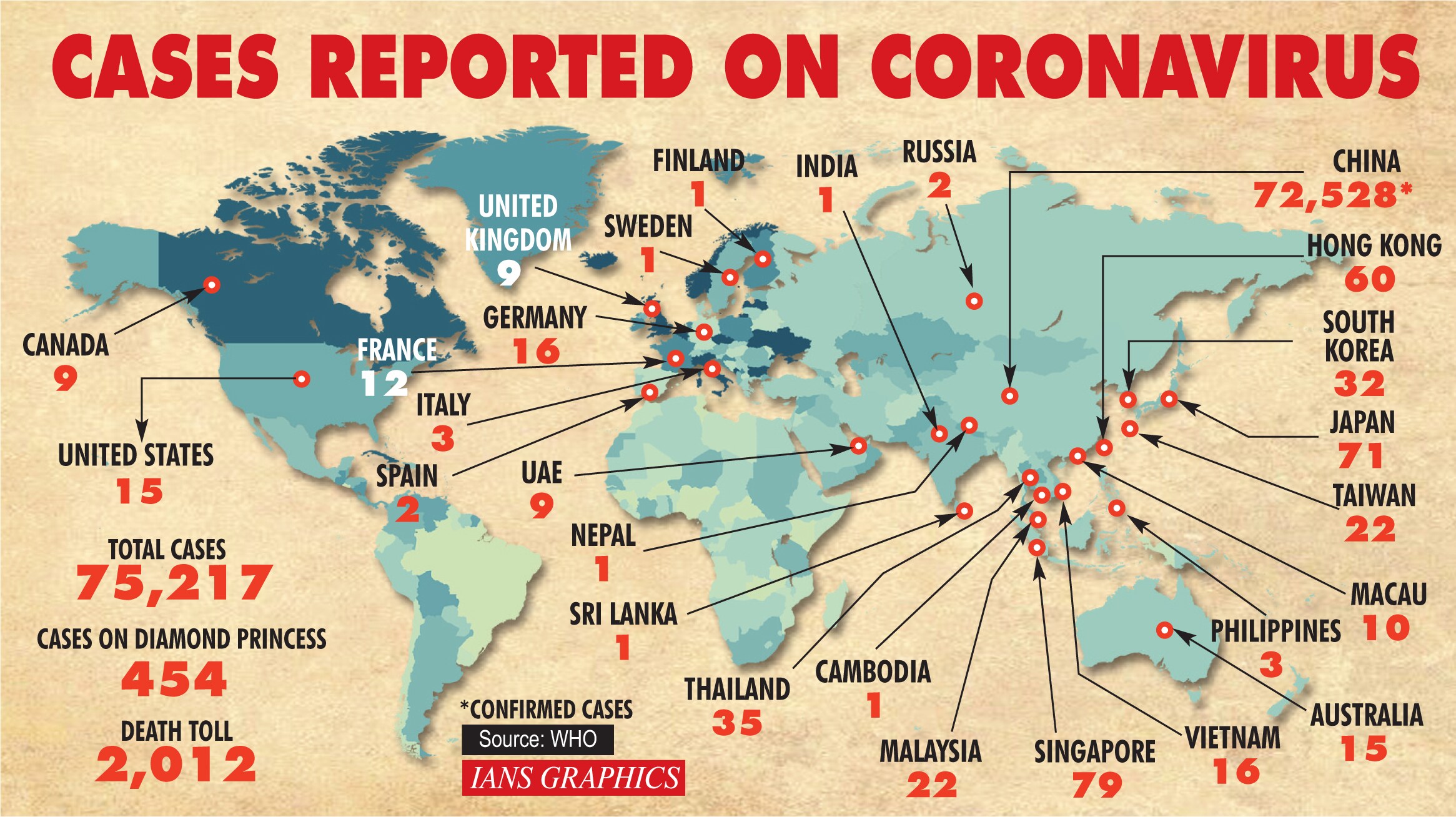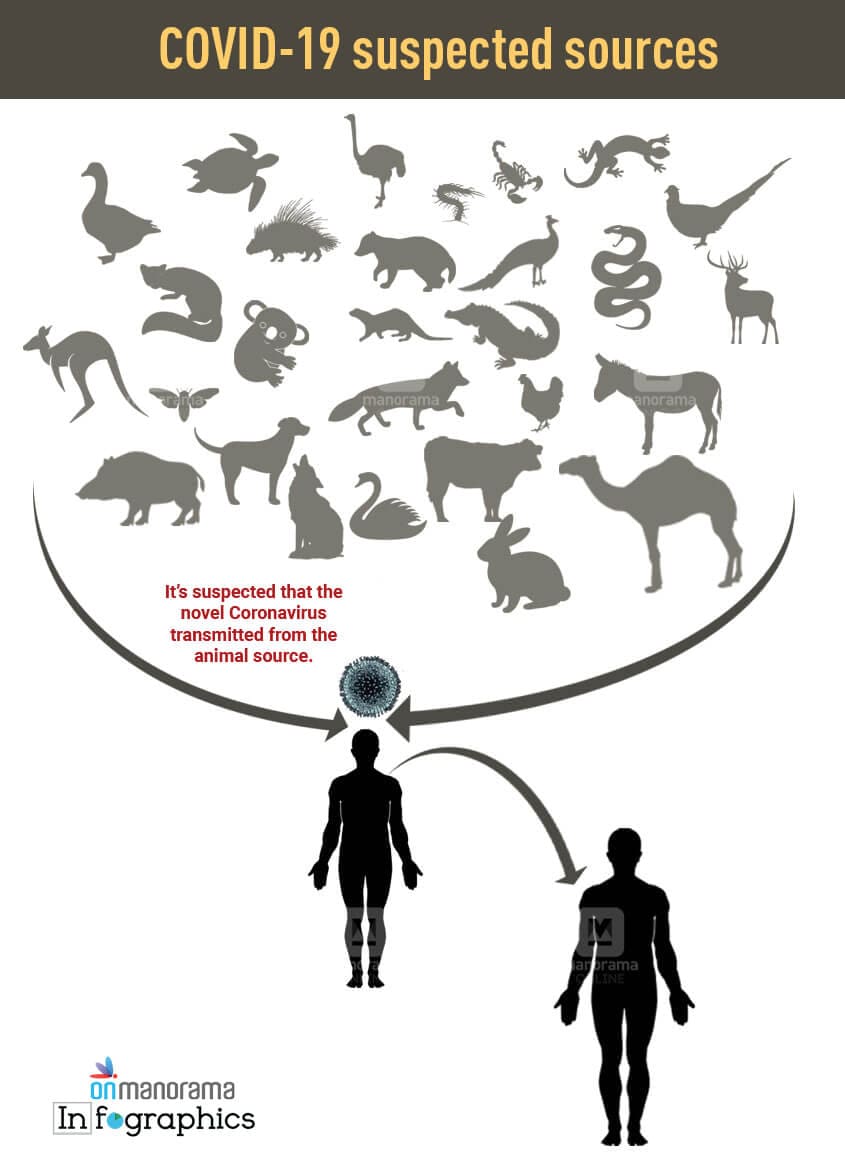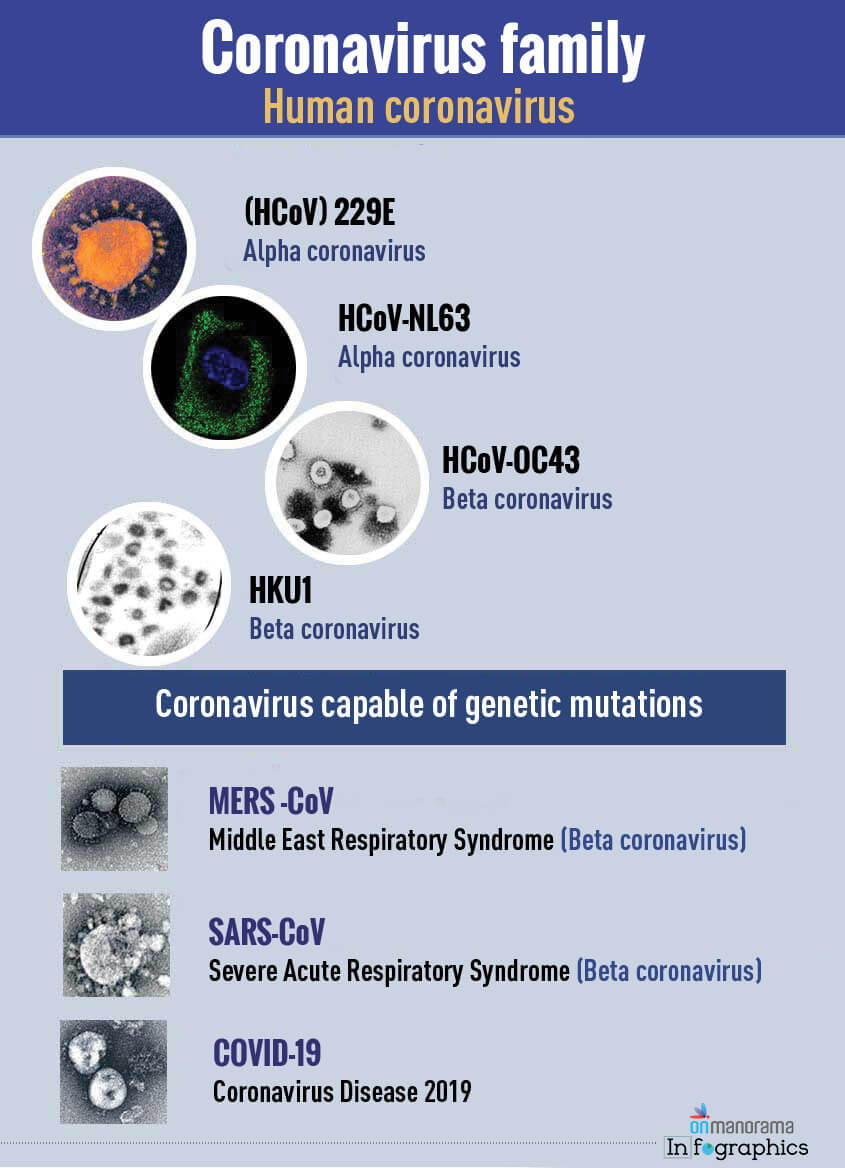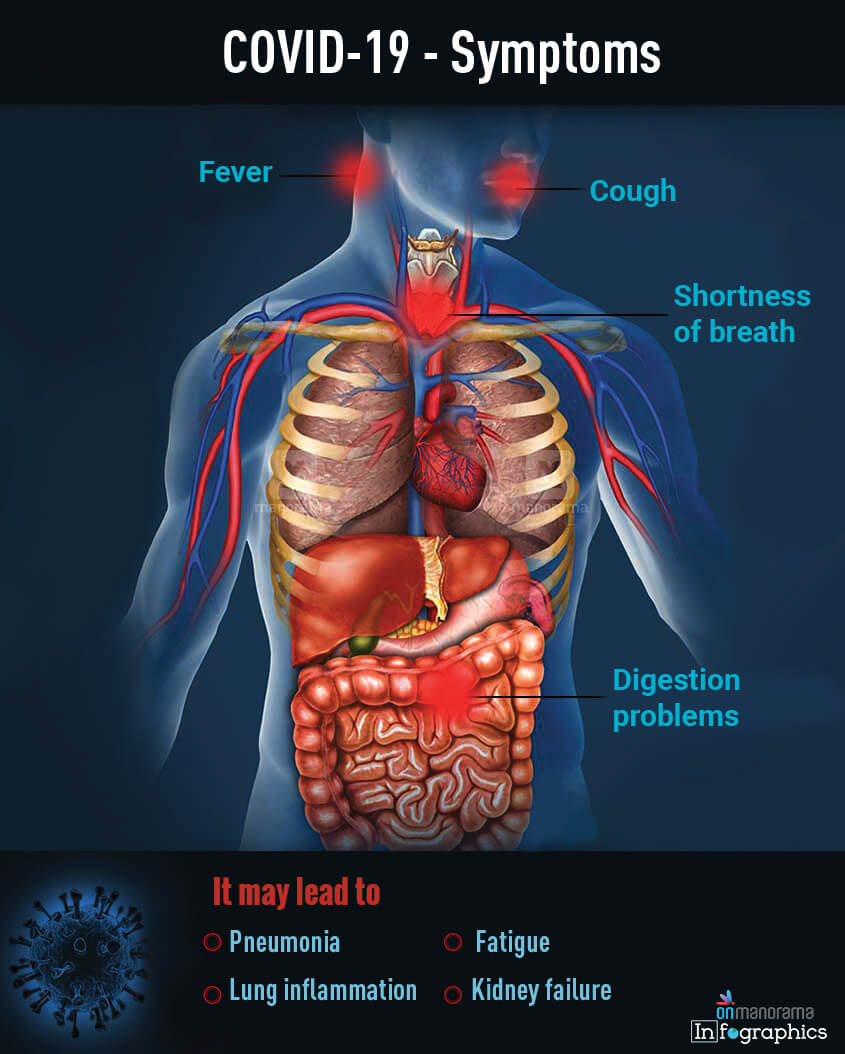The deadly Coronavirus has claimed the lives of hundreds of people in China and many more are hospitalized or quarantined at homes. The massive outbreak of the disease has led to the lockdown of many major Chinese cities. The novel Coronavirus has now been reported in India as well, with the first confirmed case in Kerala. Meanwhile, the social media is flooded with messages and posts about the disease. Despite the health department’s constant updates that there is no need to panic, people are worried about the symptoms and prevention of the coronavirus. Many are confused about what exactly the coronavirus (2019 – nCoV) is or how it is spread or whether to believe the social media posts about the disease.
Here is a complete visual guide, explaining the origin, causes, symptoms and the ways to prevent the coronavirus, based on the information provided by the World Health Organization and the Centre for Disease Control and Prevention based in the United States.
Origin
The Huanan seafood market in the Wuhan province, where meat is sold alongside live animals like dogs, hares, civets, crocodiles, bats, snakes, pigs and more is thought to be the starting point of the virus outbreak. It was on 31st December that China informed the WHO that numerous cases of respiratory pneumonia were being reported in the Wuhan province. An unknown virus, unidentified until now, was the cause of this infection. This further delayed the recognition of the novel virus and its effect on the human body. On 7th January, China officially informed the WHO that a new kind of virus, belonging to the family of the coronavirus, was detected.
On 11th January, China reported the first death caused by the novel coronavirus. The market in Wuhan which is thought to be the origin of the outbreak was shuttered down by then. On 13TH January, a case was reported in Thailand, the first outside China. From the common cold and respiratory infection to the deadly SARS and MERS, the coronavirus could cause many life threatening diseases. As it mainly affects the lungs, the current preventive measures too are focused of this. Fever, cough, breathing difficulties and digestive problems are some of the symptoms of the 2019 – nCov virus. It may lead to viral pneumonia, extreme fatigue, swollen lungs, kidney damages and even death.
What is coronavirus?
The name coronavirus is derived from the Latin word corona meaning ‘crown’ or ‘halo’ which refers to the characteristic appearance of the virus particles. The surface projections of the peplomers or protein on the virus are similar to the solar corona, thus earning the name. This virus that originates in animal hosts becomes extremely dangerous when transferred from human to human. It was in the 1960’s that such viruses were detected for the first time. The first case of the virus was reportedly transmitted from fowls. Alpha, beta, gamma and delta are the four main sub groupings of the coronavirus.
The 229E (Alpha corona virus), NL63 (Alpha coronavirus), OC 43 (Beta coronavirus) and HKU1 (Beta coronavirus) are the types of coronavirus that commonly affect human beings. These deadly viruses can undergo genetic mutations after reaching the human body. MERS (Middle East Respiratory Syndrome – Beta) and SARS (Severe Acute Respiratory Syndrome – Beta) are the coronaviruses that have been detected until now. The novel coronavirus or the 2019 – nCoV is the latest virus that was detected in Wuhan.
The novel coronavirus has not been found to be spread to pet animals like cats and dogs. However, you should wash your hands using clean water and soap after touching them. This would prevent the salmonella or the E coli bacterial infections that are usually transmitted from pet animals to humans.
From infants and kids to old people, the coronavirus could affect anyone. However, the chances of contracting the disease is more in old people, especially with those who are diagnosed with asthma and heart ailments or are already in poor health.
As this is viral pneumonia, antibiotics are of no use. Antibiotics usually fight bacteria. However, antibiotics are administered to those who are already undergoing treatment for coronavirus as they are prone to bacterial co infection.
Currently, no anti viral medication is recommended to treat infection with the new coronavirus. Treatment is directed at relieving symptoms like pain relievers, cough syrup, sufficient rest and fluids. A few medicines are yet to undergo the clinical trials. The WHO is joining hands with many organizations around the world to develop effective medication against the coronavirus.
The best preventive measure against the coronavirus is to stay away from those who are already infected.
Keep these in mind while handling food:
• Meat products should be handled in clean environment. It should be properly cooked as well.
• Do not use the same knives or cutting boards to chop the meats and vegetables.
• Wash the hands properly while handling both raw and cooked food.
• Do not eat the meat of animals that died of infections or diseases.
Personal hygiene plays a vital role in preventing not just coronavirus but most viral infections. Wash the hands using soap and water for at least 20 seconds. You could also use hand sanitizers that contain 60% alcohol. Do not touch the eyes or mouth with unclean hands. Stay away from those who are diagnosed with viral infections. Cover your nose and mouth while sneezing. Discard these tissues in waste bins. The bacteria would stay on the tissue for a few hours. So discard or destroy the dirty tissues properly. Try to stay indoors if down with flu or other infections. Obey the instructions of the doctors and health officials. Clean the clothes and other objects that are regularly used using disinfectants.

The world is still struggling to contain the coronavirus as there are still doubts about the origin of the outbreak. The seafood market in Wuhan is said to be the origin as the novel coronavirus was first detected in those who bought meat from this market which put people and live and dead animals in close contact. However, when the virus was detected in people who had no contact with the market, it was clear that the coronavirus had been spread from human to human.
Currently, the coronavirus has been reported in China and in Hong Kong and Macau that come under the Chinese administration. Outside China, it has been reported in many European countries and in Asia including India. Until 30th January, around 170 people are dead in China; 162 among them are from the Hubei province. Meanwhile, 7711 confirmed cases of coronavirus have been reported in China alone. Hundreds of people who have visited China are under observation or treatment in various countries. A 56 year old man in South Korea, who had not been to China, too was diagnosed with the virus, raising suspicion that he may have contacted with an infected person.
Risk factor
Researchers say that the novel coronavirus is not as risky or severe as the SARS virus. More than 300 people died in China due to SARS in 2002 – 03. The MERS virus too had killed around one third of the affected persons.
The coronavirus is spreading on an alarming rate in China and has already overtaken SARS in the number of conformed cases and causalities. Each day, thousands of new cases are being reported in China, to the concern of the international community and the WHO.



















